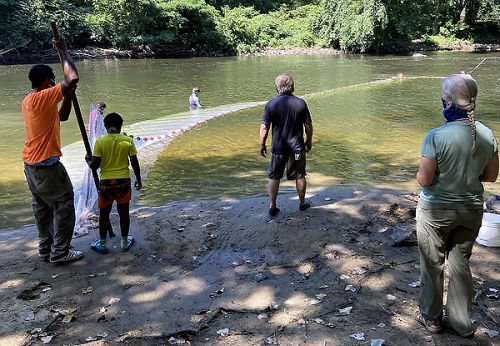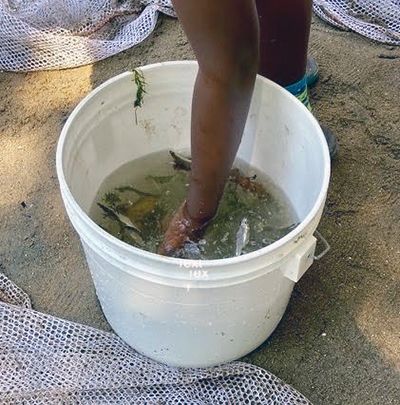American Shad Return to Habitat Inaccessible for Centuries
AUGUST 3, 2020 — Tuesday, August 28, was a historic day in Wilmington Delaware on the Brandywine River. American Shad were documented using a portion of the Delaware River for juvenile production that hasn't been available for centuries.
Formed in 2017, Brandywine Shad 2020 is a cross-section of educational organizations, non-profits, governmental agencies, and private citizens whose shared goal is to restore the region’s most historic fish, the American Shad, to the Brandywine River by the year 2020 by returning the river to its free-flowing, pre-colonial state.
The future of the once-abundant shad – often described as “the fish that fed the nation’s founders” – is in peril along the Brandywine primarily due to 11 old, industrial dams along the river’s 12-mile course in Delaware, but also due to lack of habitat, increasing water temperatures, and over-fishing of the remaining members of the species by commercial operations in the Atlantic Ocean.
In 2019 the West Street Dam was removed as part of a combined infrastructure and Natural Resource Damage Assessment project. A sampling program was developed for monitoring shad migration as the work progresses up the River. A small sampling team of scientists, community volunteers, youth, and non-governmental organizations performed sampling using a seine net and captured juvenile shad for the first time in centuries above the former West Street Dam (about three quarters of a mile). The previous sampling effort by this group documented adult shad moving this far up the River.
Brandywine Shad 2020 and other efforts on the River (such as the Northeast Wilmington Brownfield Area Wide Plan) will enhance natural resources and the quality of life in an urban area that has experienced several environmental justice issues for a long time. As a federal co-lead for the Delaware River (WIlmington, Chester, Pennsylvania; Philadelphia, and Camden, New Jersey) Urban Waters Federal Partnership location, NOAA is supporting several environmental justice projects and efforts in this important area of the country.
For more information please contact Simeon.Hahn@noaa.gov.
 An official website of the United States government.
An official website of the United States government.


